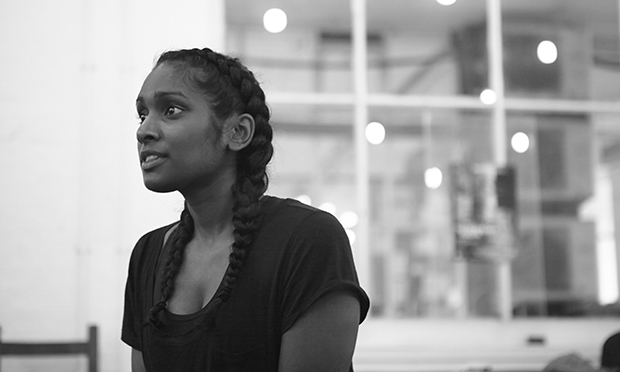Human rights play to shed light on ‘biggest unreported war story of our time’

Workshop for The Island Nation
The final phase of the 26-year conflict in Sri Lanka between government forces and the rebel Tamil Tigers is the biggest unreported war story of our time, according to human rights theatre company Ice and Fire.
Their new play, The Island Nation, is set in Sri Lanka during the latter years of Asia’s longest-running civil war, a conflict which is thought to have claimed the lives of 100,000 people.
Playwright Christine Bacon wrote the play, which opens this month at the Arcola in Dalston, to address what she calls a “black hole in history”.
“It’s one of those things that seems to have passed the world by and it really shouldn’t have,” says Bacon when we meet in her Bethnal Green office.
“I think people know snippets: they’ve heard of the Tamil Tigers, or maybe they’ve been there on honeymoon, but the final stages of it were extremely brutal in terms of the extent of human suffering.
“It’s something that in any other context would have been headline news.”
The Sri Lankan Civil War began in July 1983 with an armed insurgency against the government by the Liberation Tigers of Tamil Eelam (Tamil Tigers).
The Tamil Tigers wanted to create an independent Tamil state called Tamil Eelam in the north and the east of the island.
The conflict ravaged the population, environment and economy of Sri Lanka.
In 2009, after two decades of fighting, with several failed peace talks and false dawns, the Tamil Tigers were defeated.
In that same year, Bacon recalls international outcry at the bombing of civilians in Gaza.
She compares it to the situation in Sri Lanka. where civilians were bombed “indiscriminately” with nothing reported and only a muted response from the UN. So why the disparity?
“There’s multiple reasons why and that’s what this play delves into and tries to address,” says Bacon.
“Sri Lanka is basically an authoritarian country and way down on the press freedom list. It’s one of the most dangerous places to be a journalist so dissent on a domestic level is very rare, and the media weren’t even reporting it in Sri Lanka itself,” Bacon says.
The play, partly based on true events, tells the story of Nila, a young Tamil woman trapped in rebel-held territory, and a British aid worker desperate to get her out.
“There are three strands to the play,” Bacon explains. “It looks at what was happening in the war zone and the people who were trapped there.
“Then there’s the role of the UN and how they basically shut their eyes and ears and hoped it was all going to end.”
The final strand of the play is the peace process itself. Norway was asked to mediate in the conflict, and one of the politicians who tried to broker the cease-fire is a character in the play.
“His involvement in the conflict spans around 10 to 15 years,” says Bacon.
“So the play begins in around 1999 and goes up until 2009. It compresses a lot into an hour and a half.
“But for an audience that has no idea of what was going on in Sri Lanka you have to give them that history about where the conflict came from, who the Tamil Tigers were and what that wrangling was all about before you go into what happened at the end.”
The civil war officially ended in 2009, but that doesn’t mean that the minority Tamil population are still not suffering human rights violations, Bacon stresses.
“Freedom from Torture, a UK charity providing clinical services to torture survivors, has reported The Sri Lankan Tamils as the highest proportion of their case load for many years since the conflict ended,” she says.
“There was a cut off point but the abuses and the human rights violations certainly have not stopped – our play ends with a nod to the fact that it isn’t over.”
The Island Nation
26 October – 19 November
Arcola Theatre, 24 Ashwin Street, E8 3DL
arcolatheatre.com
